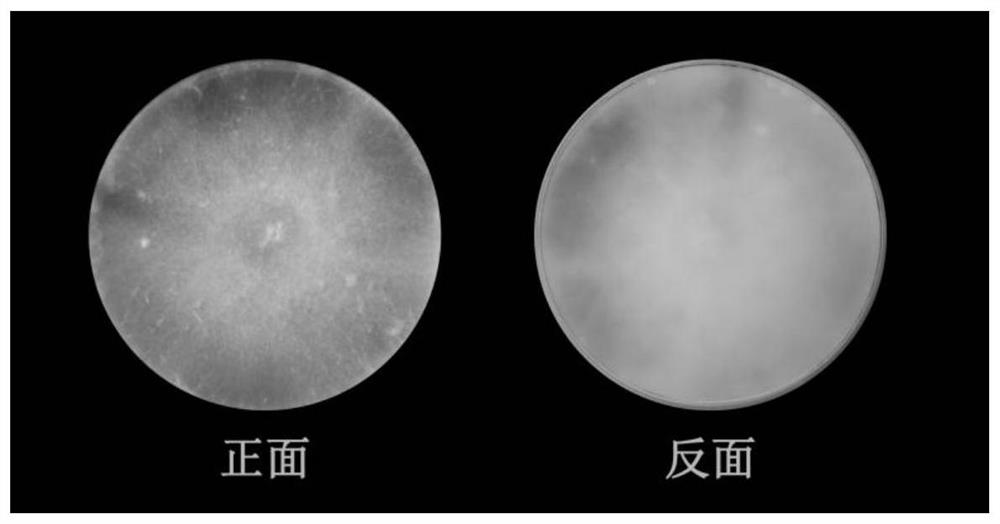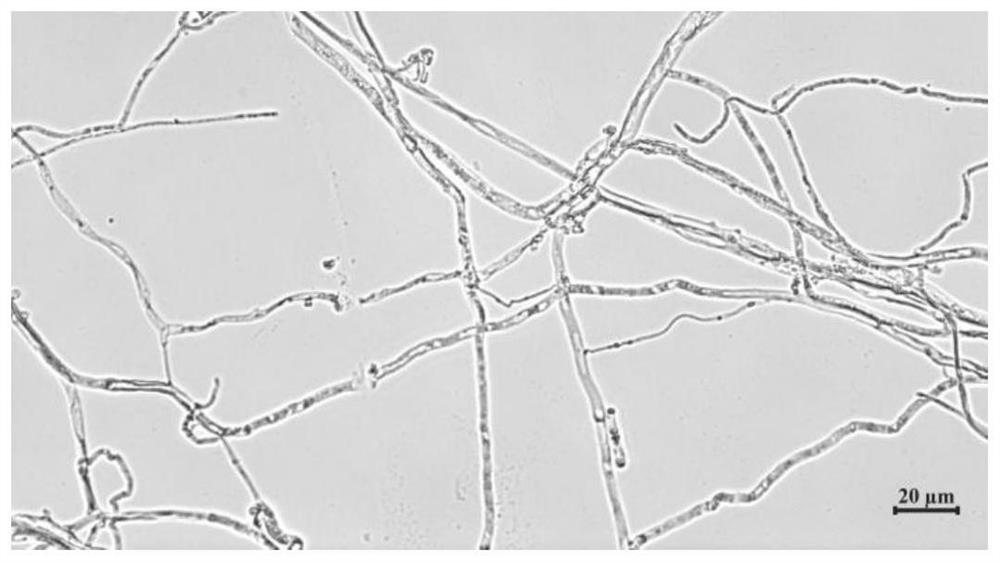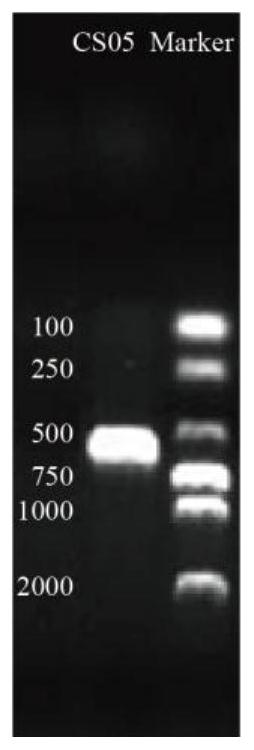An endophytic fungus of saffron and its application in preventing and controlling bulb rot
A technology for endophytic fungi and bulb rot, applied in the field of plant disease prevention and control, can solve the problems of bulb rot that has not been reported, and achieve the effect of alleviating the disease, obvious effect, and broad application prospects
- Summary
- Abstract
- Description
- Claims
- Application Information
AI Technical Summary
Problems solved by technology
Method used
Image
Examples
Embodiment 1
[0028] The endophytic fungus is isolated and obtained according to the following steps: fresh saffron plants are taken and washed under clear water to remove surface impurities. Cut tissue parts of appropriate size (terminal buds, bulbs, flowers, leaves, and membranous coatings), wrap them in gauze and perform three-step surface disinfection treatment, 75% ethanol solution for 1 min, 1% sodium hypochlorite solution for 3 min, and 75% ethanol solution for 30 s. Sterilize and take out, cut out small pieces about 0.5cm×0.5cm in size from the middle part of the tissue and inoculate them on culture plates, 4 pieces per plate. Seal with parafilm, record the number, and incubate at room temperature for 7-14 days. Regularly observe the growth of the colony, and screen out a single target colony according to the shape and color of the colony. Under sterile conditions, pick the tissue pieces from the tip of the target hyphae and transfer them to a freshly prepared PDA petri dish for re...
Embodiment 2
[0031] Take the cryopreservation tube of CS05 strain, under aseptic conditions, pick a little mycelium with an inoculation needle and place it in the freshly prepared PDA medium for activation, and cultivate it in the shade at 28°C until it matures; take the saffron rot pathogen Fusarium oxysporum F .oxysporum, use a fungal puncher to punch the mature colony into a 0.5cm×0.5cm fungus cake, place the pathogenic bacteria at the center, draw a line at an angle of 120°, inoculate CS05 to a position 2cm away from the center, and carry out plate confrontation test. The results showed that the endophytic fungus CS05 could effectively inhibit the growth of the saffron rot pathogen Fusarium oxysporum in vitro, with a relative inhibition rate of 76.53%, which was higher than that of Trichoderma harzianum, such as Figure 6 shown.
[0032] Take the cryopreservation tube of CS05 strain, under aseptic conditions, pick a little mycelium with an inoculation needle and place it in the freshl...
PUM
 Login to View More
Login to View More Abstract
Description
Claims
Application Information
 Login to View More
Login to View More - R&D
- Intellectual Property
- Life Sciences
- Materials
- Tech Scout
- Unparalleled Data Quality
- Higher Quality Content
- 60% Fewer Hallucinations
Browse by: Latest US Patents, China's latest patents, Technical Efficacy Thesaurus, Application Domain, Technology Topic, Popular Technical Reports.
© 2025 PatSnap. All rights reserved.Legal|Privacy policy|Modern Slavery Act Transparency Statement|Sitemap|About US| Contact US: help@patsnap.com



